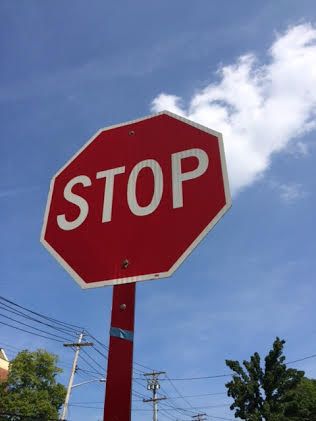
In five years of talking with people about facing fears, I’ve heard a lot of reasons for being afraid. Lack of experience, fear of negative outcome, discomfort with discomfort, are common and surmountable. But the most compelling (and difficult to challenge) reason is trauma. Far from abstract anxieties of what might happen, trauma is real. Trauma is proof that the world is not safe, and in order to keep us from exposing ourselves again it emblazons itself on our memories and tells us at the first sign of uncertainty to STOP. For accident or crime victims, survivors of illness or loss, fear may trigger a fight-or-flight reaction at the drop of a hat and trap us where we are – the idea of living a big, brave life going forward may seem far fetched. Which is why YOUR LIFE AFTER TRAUMA: Powerful Practices to Reclaim Your Identity(Norton) by Michele Rosenthal, is essential reading for anyone with post-traumatic stress disorder who wants to come back to life.
I love Michele’s take on the STOP signals that keep trauma survivors from taking steps toward their own healing. Fear is a natural part of change, she says. You may no longer want to live an “exhaustingly on-edge” life but fear in its hypervigilence is going to try to keep you there. When it does: “Think of fear as a stop sign. When you approach an intersection and see a stop sign, you remain calm…Stop, check all ways to see oncoming traffic (aka threats), and then proceed with caution.” In my own life (in which my two speeds used to be set to brake and emergency brake) I no longer see fear as an automatic stop – sometimes it’s an invitation to start! Michele’s guidance to assess the situation like a driver who wants to go somewhere is a great way to keep fear from paralyzing us and to keep us moving toward our goals.
Michele knows this from personal experience. At age 13, Michele suffered an allergic reaction to antibiotics that turned her into a full-body burn victim. For weeks she was quarantined in the hospital; upon her release she had lost 100% of her epidermis. As a teen she had anorexia and obsessive thoughts, and for the next two decades she struggled to build a life with PTSD, until she underwent a “healing rampage” and broke through in her recovery and became entirely PTSD-symptom free. Today she helps other survivors through her website HealMyPTSD.comand her Changing Direction radio show (I had the privilege of being a guest on Changing Direction last winter, have a listen: “Overcoming Fear in PTSD and Trauma Recovery”).
In Your Life After Trauma, Michele explains the physiological and emotional impact of trauma and acknowledges head on that trauma has changed you. Then she asks how you want to change yourself, because “if your brain changes in response to experience, then you have the opportunity to deliberately help your brain change again based on new experiences you create.” With self-reflective exercises readers can remember and mourn the loss of who they were before the trauma, see who they have become since, and who they want to be. Connecting readers with the parts of themselves – past, present and future – they most value and want to cultivate helps integrate identity rather than breaking a life story into a stark before and after.
“[C]onstructing a post-trauma identity is all about choosing who you are,” she says. “The objective is for the past to become a very tiny part of your very large, confident, capable, and free self.”
I’m reminded of the story I told in Some Nerve of Carmen, who stopped driving for 15 years after a terrible car accident that almost killed her and her family. No one argued with her; I didn’t even want to ask her to face that fear. “Scarred for life,” is a concept any survivor and anyone with a heart can understand. But then I met Lynn, who’d also been in a terrible car accident and who spent her months-long recovery process going over the accident in her head. Lynn decided to become a driving instructor to teach people to be better drivers. She also became a counselor to help those with driving phobias. Putting Lynn and Carmen together for a driving lesson was living proof that trauma can change us, and we can change ourselves and the wider world as well.
For those who feel powerless, Michele provides paths toward greater self-understanding, awareness, and hope. I feel safer just knowing that whatever happens (and in life, something will always happen) that a blueprint for transformation like Your Life After Trauma exists. Even in the easier times we all experience fear, and like Michele, like Lynn, may we take it as a sign to stop, look, and move courageously toward the future we want and that is ours for the creating.


